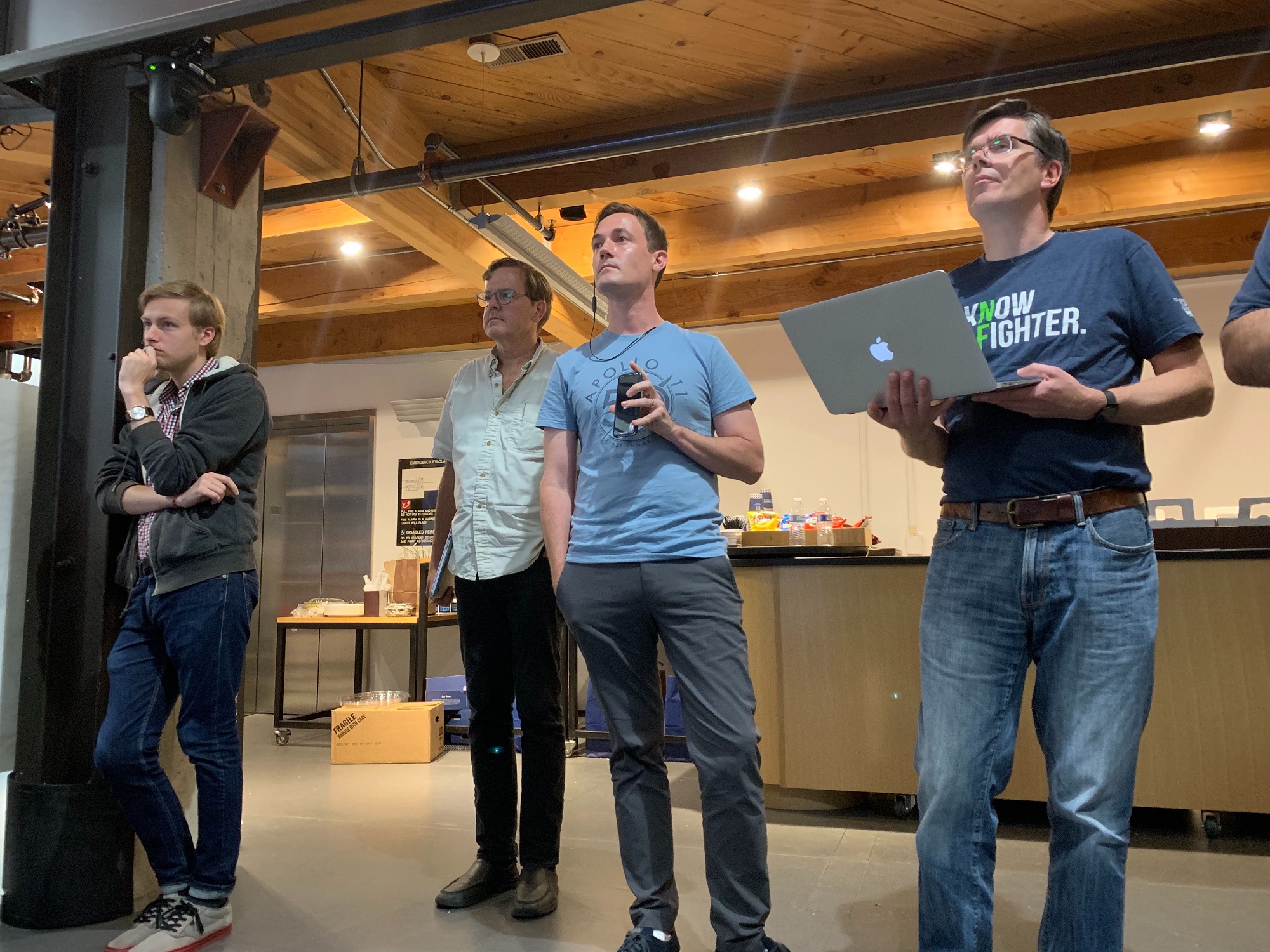A Wayne State University researcher took part in the NF HACKATHON, in which more than 120 researchers, data scientists and engineers came together Sept. 13-15 at the Google Launchpad in San Francisco to explore data from the NF Data Portal, the leading open-source collection of genomic and clinical data about the genetic disorder neurofibromatosis.

Ray Mattingly, Ph.D., professor and chair of the WSU School of Medicine’s Department of Pharmacology, gave an introductory presentation at the start of the hackathon to provide background on NF as a syndrome and disease.
“The idea was for me to describe some of the significance of the work they were going to do,” he explained. “I think it went very well. It was a fully subscribed meeting, with I think 75 participants on-site and additional remote participants, including a group in Mexico City.”
Participants of the second annual NF HACKATHON were to analyze large data sets to look for new therapeutic targets for patients with neurofibromatosis. Dr. Mattingly contributed his lab’s data to that effort through an open science/data-sharing initiative.
“Several of the groups were interested in how to analyze the drug screening data for NF, and so I was able to answer questions for them about NF in that context,” he said. “The participants were a mix. Nearly everyone knew how to write and work with code. The majority were bioinformaticians. Most had no direct previous exposure to NF. I would definitely do it again. I had many useful discussions with the participating groups and the other area experts who were brought in to assist them.”
Sponsored by the Children’s Tumor Foundation in partnership with Sage Bionetworks and SVAI, the three-day event combined the fields of genomic medicine, computer science and vision, statistics and bioinformatics for new insights into diseases like NF.
Dr. Mattingly’s research focuses on the identification of new therapeutic approaches to cancers that are driven through activation of Ras signal transduction pathways in the absence of direct oncogenic mutation of Ras. His group is developing 3D co-culture models of neurofibromas through the Neurofibromatosis Therapeutic Acceleration Program, with the goal of producing new pathomimetic systems for drug screening. In work supported by the Department of Defense Neurofibromatosis Research Program, he is collaborating with a bioengineering group to develop 3D co-culture models of plexiform neurofibromas that include neuronal mimics. His laboratory is partnering with biotech and pharmaceutical companies to investigate whether drugs can be re-purposed for the treatment of NF1.